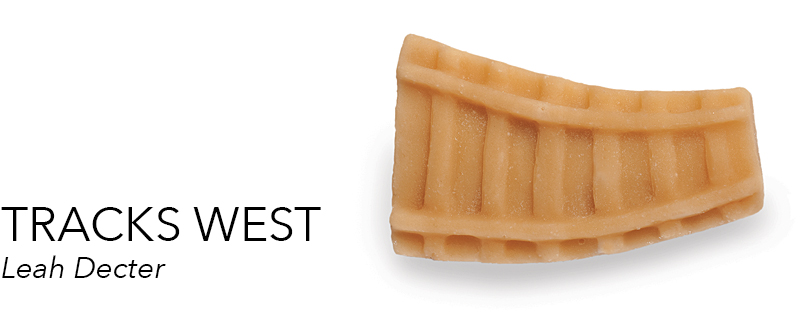In Canada we often think of the railway as unifying the country. Its passage through towns and cities, along rivers and lakes, across the plains and through forests is understood to connect us as Canadians from coast to coast. Within the telling of Canadian history, the railway is mythologized as being instrumental to ‘opening the west’ for settlement and in doing so making it possible for those who came from other lands to forge better lives.
To be sure, in the 1880s, the railway helped to open the west. What is not conveyed in this version of our history is the way the railway was used to propel a tide of colonization. To make way for the railway, and the incoming settlers it was built to transport to the west, Indigenous peoples in the plains were deliberately starved, forcibly removed from their traditional territories and confined to reserves through the pass system. The ‘settlement’ that followed fulfilled an urgent need for the emerging Canadian nation to populate the land with non-Indigenous people as an act of possession that illegitimately transferred Indigenous land and the rights to resources to the Canadian state and its non Indigenous citizenry.
Given the weight of these lesser-told histories, we might ask ourselves how the rail lines truly link us in the present through the continuing occupation of Indigenous land.
![]()
Leah Decter is an inter-media/performance/social practice artist, curator and scholar based in Winnipeg; Treaty 1 territory. Currently a SSHRC Postdoctoral Researcher at York University she holds a PhD in Cultural Studies from Queens University and an MFA in New Media from Transart Institute. Her artwork, research and writing focus on contested spaces, largely contending with histories and contemporary conditions of settler colonialism and white supremacy from a critical white-settler perspective. Decter has exhibited, presented and screened her work widely in Canada and internationally in the US, UK, Germany, Malta, Australia, Netherlands and India. Her recent journal articles have been published in the Journal of Critical Race Inquiry, Liminalities: A Journal of Performance Studies and Canadian Theatre Review. Her current research-creation projects address social-spatial politics consequent to settler colonial formation, and consider the ethics of being-in-relation in spaces of Indigenous sovereignty.

